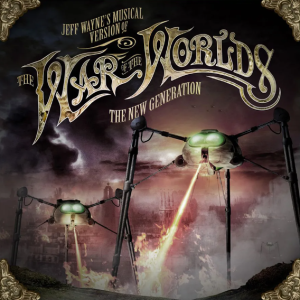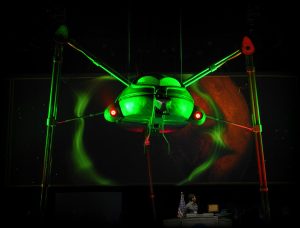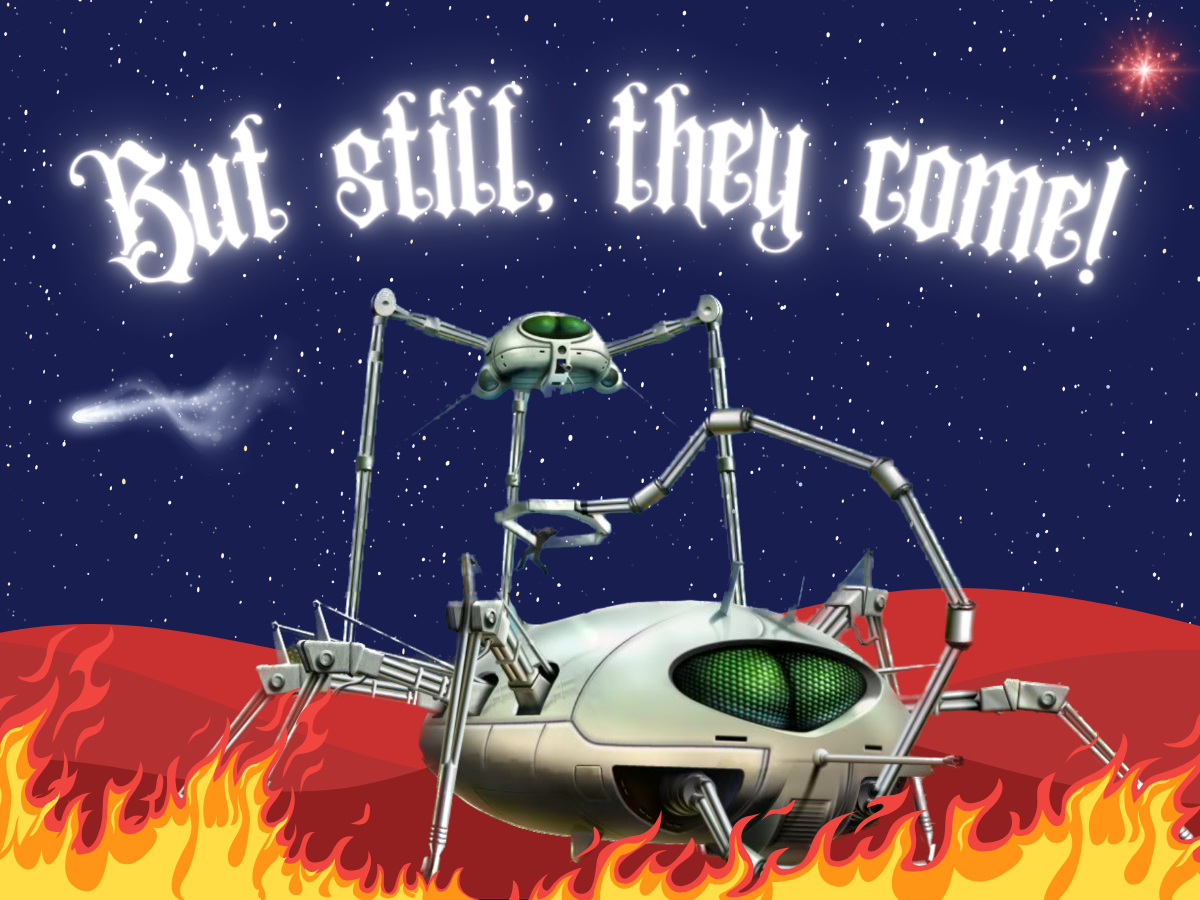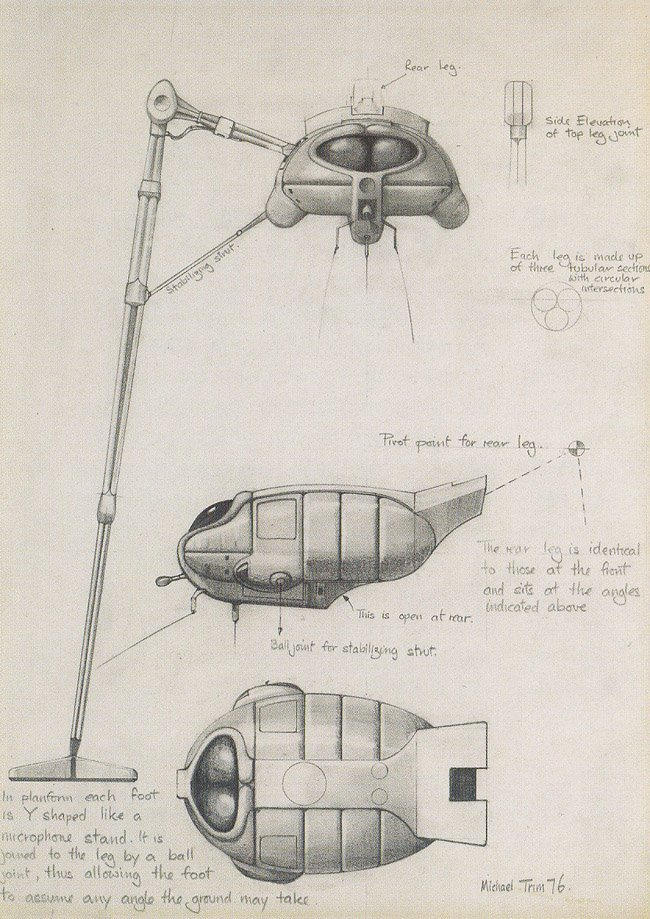In the United States and around the world, seemingly every other week, a new album comes out from some famous artist that keeps everyone hyped for new music. In 2024 alone, albums by Kid Cudi, 21 Savage, Kali Cushi, and Benny the Butcher have left listeners to discuss their work’s quality and greatness, solidifying the common presence of hip-hop, electronic, and rap music in contemporary, musical culture.
Today’s music listeners of any age and genre quite easily understand the structure of a typical album: an artist will release several songs, 30 minutes to an hour in length total, with (hopefully) wonderful singing, great instrumentals, and a deeper meaning meant to reflect the ideals of the artist or group that produces said album. But every now and then, a new album comes out that challenges what structures or defines an album, showing itself to be an innovative, perhaps redefining mix of musical talent and skill. In 1978 in England, this was what defined Jeff Wayne’s Musical Version of The War of the Worlds, yet close to no one knows the true novelties and peculiarities of such a powerful album.
Jeff Wayne’s Musical Version of The War of the Worlds (1978) is a progressive, storytelling, rock concept album created by Jeff Wayne and Richard Burton. It retells the classic story by H.G. Wells, The War of the Worlds (1898); in this story, Martians invade Earth leading to a planetary war in an attempt to move the Martian race to Earth. This story delivered a powerful, liberal message; the story was a critique on humanity’s excessive focus on imperialism, especially British imperialism, by making the human race the technologically inferior party in this “Anglo-Martian War.” Not only that, but the album upholds science, critiques religion on its inability to pair with or overcome logic and reason (especially in a crisis), and even delves into themes of depression and suicide. Jeff Wayne’s album musically retells this story, not through several clearly split songs, but through over a dozen songs, all mixed together into over an hour and a half of orchestral emotion, deep voiced narration, and alien sci-fi noises and war cries; it is more like one 93-minute song than a typical album. More than anything, this production is more akin to an audio musical, like radio theater, but is instead, by definition, a studio album, one that can be found on YouTube, Spotify, and Apple Music.
The War of the Worlds, as a story, has, rather unknowingly, been adapted into countless media forms, but Jeff Wayne’s album stands out especially because of its unique form/structure and what it stands as. It doesn’t feel like an album, yet it is, and it is made professionally.
While this album was Jeff Wayne’s most famous work, he had already been famous in British rock circles for his work in film music, advertising jingles, and helping to produce David Essex’s debut album (and single), Rock On. Richard Burton on the other hand is the album’s main narrator, who some may know for his role as O’Brien in the film Nineteen Eighty-Four (1984). The album, being made so professionally and from such unexpected sources, feels more like a musical or show; it’s almost impossible to imagine any moment in this album without striking and horrific visuals, ones fabricated from the mind of the listener. This is even further cemented through the creation of the five hour-long 2018 re-adaptation and musical drama, Jeff Wayne’s The War of the Worlds: The Musical Drama, which can be found on Audible and YouTube. One can’t even listen to each song in a random order, it must be heard in its full 93-minute glory as, like the original book, the story is told chronologically.

(Jeff Wayne, Liam Neeson, Gary Barlow)
Jeff Wayne’s Musical Version of The War of the Worlds is a unique and strange album fresh out of the 1970s that almost no one knows about; many may recognize The War of the Worlds but not its musical adaptation made a full 80 years later. While not popular with the general public, Jeff Wayne’s album specifically has paved the way for other connected works: a video game, a remix album, a summarized highlights album, the aforementioned musical drama, and even a 2012 re-working album featuring Liam Neeson as the narrator (also available on YouTube, Spotify, and Apple Music).
Despite being produced as an entirely audio based experience (save the album cover and concept art preceding it), this album is often recognized by its visuals despite not having a single official music video, becoming almost inseparable from them, unlike any other album. Even more incredible is the fact that this album “tours” in the UK. Called “The Immersive Experience.” the music of this album is presented with a full orchestra, large screen visuals, and a giant replica of a Martian war machine that spits fire; The Spirit of Man Tour has already been announced for 17 different shows in 2025 all across the UK as well.

(Keith Jones)
This album undeniably changes what the structure of an album can be by mixing different nuanced elements of then-new conceptual music into a 93-minute masterpiece. By mixing musicless narration, orchestral music backed by electronic instrumentation, natural multi-character dialogue, and a range of other new musical elements, Jeff Wayne’s conglomerate paragon retells a classic tale in a nuanced, modern way. This album, having turned 45 in 2023, must not be forgotten despite it being so niche and nuanced. It retells the gripping tale of survival and fleeting hope under a foreign, Martian takeover of the planet we call dear, in a near impossible “us versus them” battle: humans versus Martians, where the humans are “ants.” Even more-so, the aforementioned musical drama may have even told the story better a whole 40 years later in over thrice the time. For anyone with the time in their life to watch an entire movie, for anyone with a passion for sci-fi and powerful music, and for anyone who loves experimental music, Jeff Wayne’s Musical Version of The War of the Worlds is definitely worth the listen.










